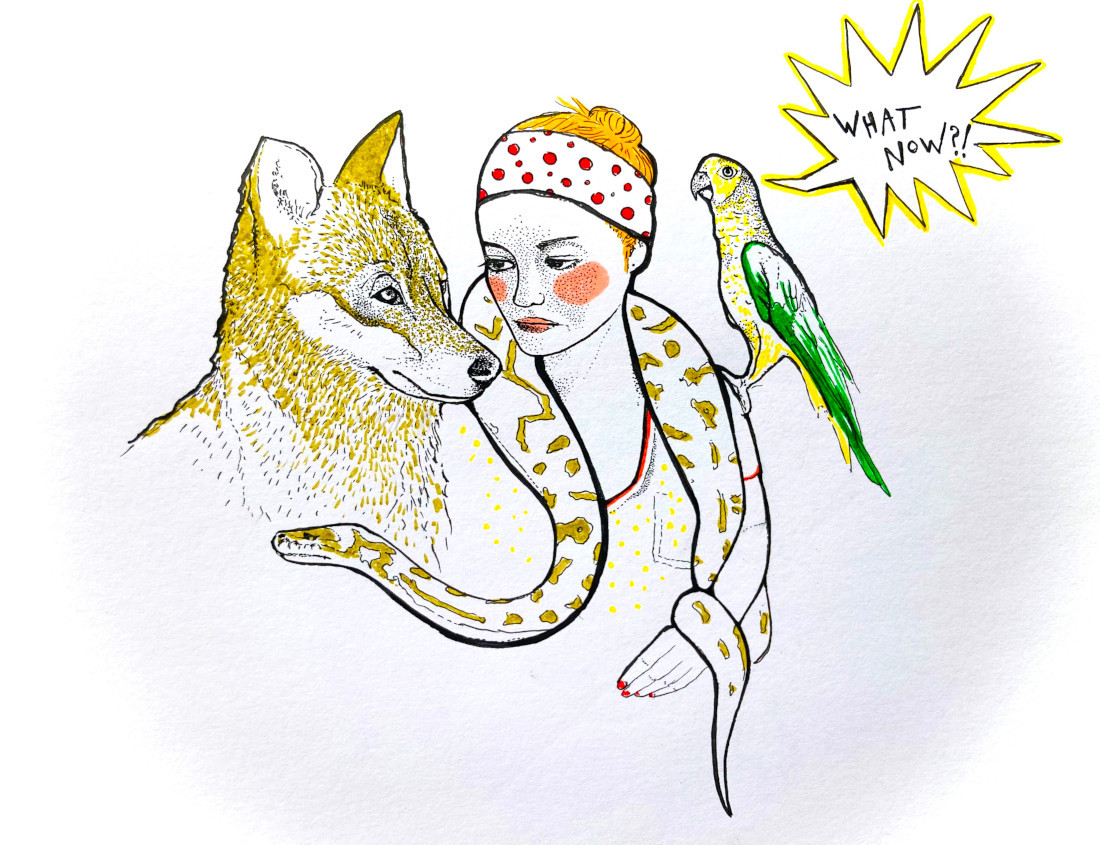Fight or Flight
Exotic pet owners apprehensive about potential bylaw changes
For many bird owners in Winnipeg, their feathered friends are more than pets. They are companions, even family members.
This community was threatened by the possibility of new bylaws that have the potential to drastically alter the homes and lives of Winnipeg’s bird lovers.
In May 2021, the City of Winnipeg began an evaluation of the Responsible Pet Ownership By-Law and released its recommendations for review shortly after. The summer saw the start of public engagement, as stakeholders were invited to give feedback and share their own ideas.
In response to the proposed recommendations, Jessie Christianson created “Protect Winnipeg Pet Parrots, Finches and Canaries,” a growing petition that currently has over 8,000 signatures. Christianson has also been a contributing member of the Manitoba Canary and Finch Club for the last 12 years.
She describes the community of bird owners in Winnipeg as a close-knit group working together to “assist people in caring for their animals.” Clubs such as the Manitoba Canary and Finch Club and the Manitoba Parrot Club are active in the community, eager to educate the public and ultimately working to ensure the wellbeing of Winnipeg’s domestic birds.
How this close community will be affected by the proposed bylaws is unclear. But for Christianson, the prospect of any adjustments is worrisome.
“We don’t want anything to change in the current bylaws,” Christianson says. The City’s current recommendations include the introduction of an allowable list, with the goal of reducing the exotic species that can be owned as pets.
However, the allowable list has proved to be quite divisive, forcing the city to seek additional engagement before updating the bylaw.
For Christianson, the decision is clear. “There is no need to ban or greatly limit what bird species can be owned here in Winnipeg,” she says. For others, the allowable list is pivotal to ensuring the protection of exotic animals and improving animal welfare.
Leland Gordon, general manager of Animal Services, says the City is working to find a compromise between the pet industry and animal-welfare community regarding the keeping of exotic animals. “There’s two different philosophies, and they’re diametrically opposed,” Gordon says.
The recommended bylaw changes propose possession limits for exotic animals, including birds. For Christianson, these limitations do not address situations of abuse or mistreatment, which can occur regardless of the number of birds owned. She believes that issues of animal neglect would be better addressed through husbandry-based bylaws, as opposed to a species ban or limit.
Christianson emphasizes that, for exotic animals, every situation is different, and each species requires its own distinct set of guidelines. “There are many circumstances where owning more birds than, say, cats or dogs makes sense, because birds are flock animals,” she says.
She argues that the proposed bylaws lack the needed time and research and that the City has failed to properly consult interested stakeholders. “(We’re trying to) help them understand that there’s a little more science that goes into choosing which breeds are good or what qualifications are being met for their livelihood,” she says. The City held two consultation meetings with the Manitoba Canary and Finch Club.
Based on public feedback, such as Christianson’s petition, it was determined that further review of the proposed exotic animal recommendations was required. On Jan. 20, the City posted a survey asking for additional engagement regarding exotic-animal legislation. The City website states that it is continuing “to meet with stakeholders representing the pet industry and animal-welfare organizations to gather feedback.”
“I really would hope that (the City) would turn to us as the experts to give them the answers they’re looking for when putting the bylaws in place,” Christianson says. She was also disappointed by the format and wording of the survey in presenting the allowable list as a largely positive idea.
The City received a number of submissions regarding updates to the exotic animal bylaws. A summary of public feedback notes supporting possession limits, alongside requests that the suggested limits were far too low.
“The City is engaging both the industry and animal owners,” Gordon says. “We’re also engaging local animal-welfare groups.” He encourages any residents who would like to be involved to take the survey currently listed on the City website. The survey will be used to determine the formal recommendations that the City will present in the spring.
To take the survey on Winnipeg’s responsible pet ownership bylaws, visit bit.ly/3B75H6x.
Published in Volume 76, Number 17 of The Uniter (February 10, 2022)







